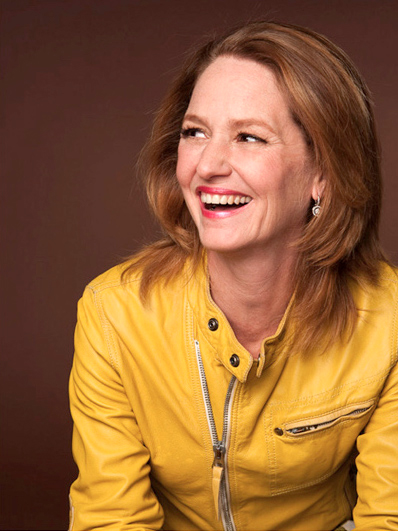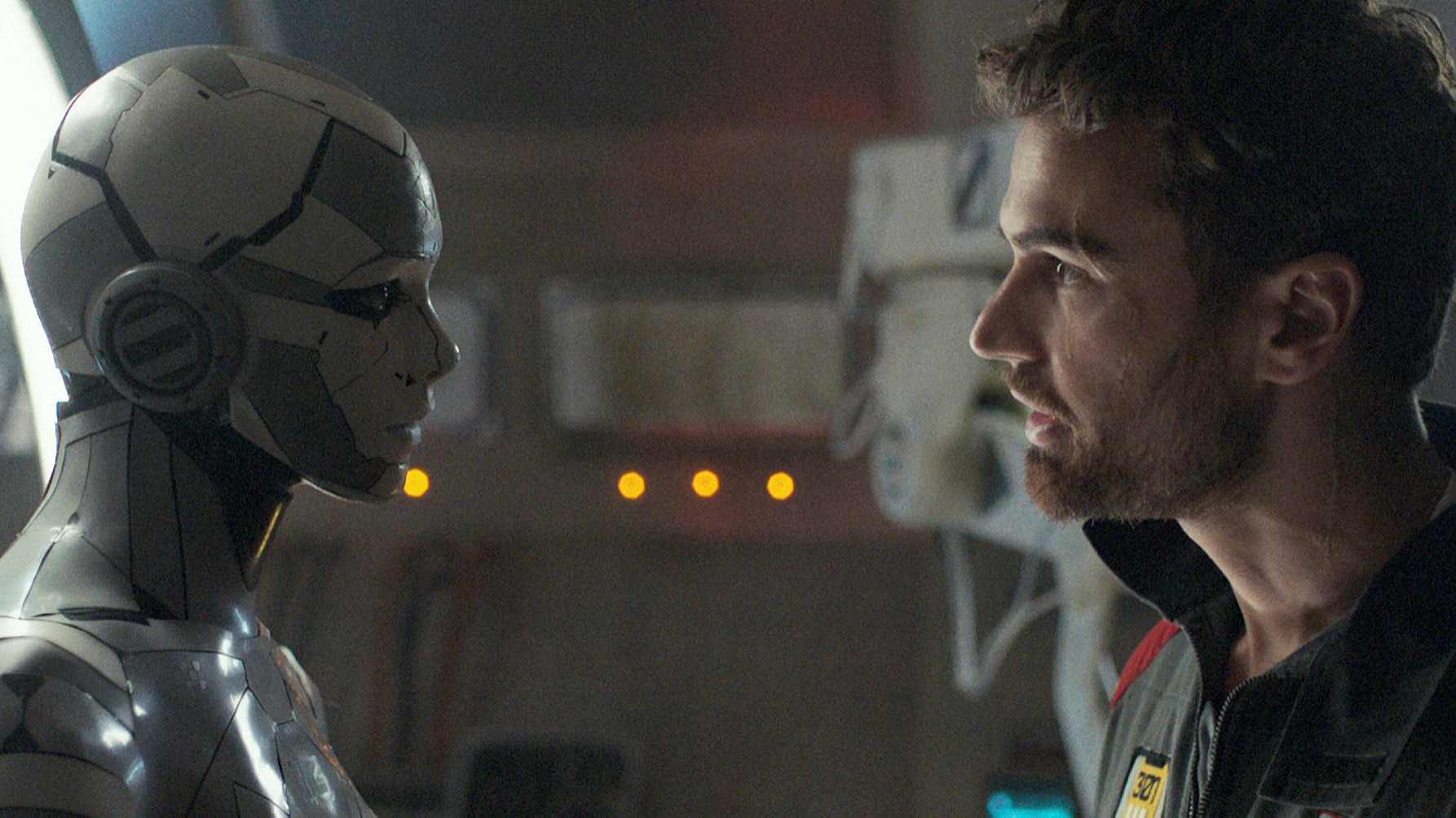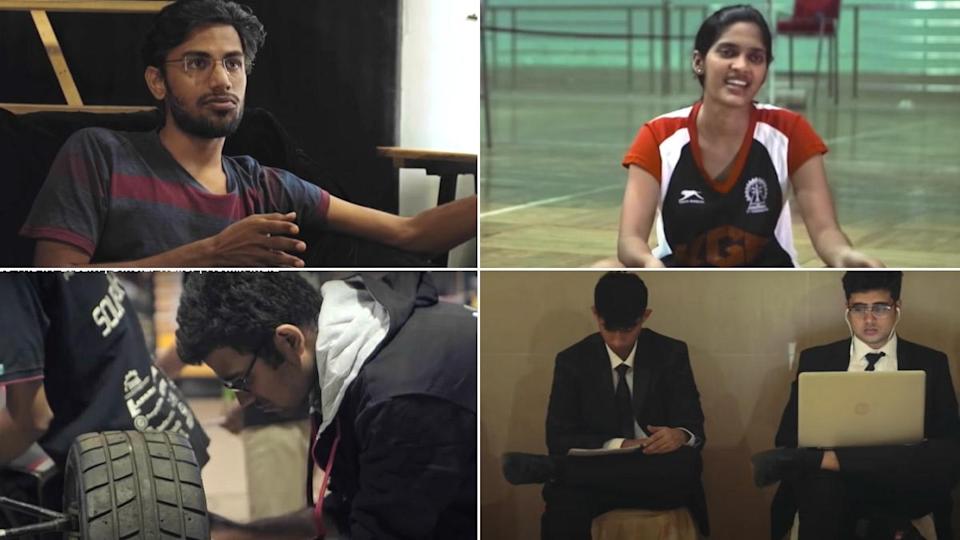IIF was privileged to have the chance to interview Academy Award winning actress Melissa Leo. She was most recently acclaimed for her award winning performance in “The Fighter” as Alice Ward, as well as roles in “Flight” (as Ellen Block), “Oblivion” (as Sally), and “Olympus Has Fallen” (as Ruth McMillan). Her relationship with Mirra Bank, director of “The Only Real Game”, has led to her narrating the film. Check out our interview below!
India Independent Films: Thank you very much for taking some time to speak with us today. It’s a special opportunity for us to be able to work with someone as renowned as yourself! Tell us a little bit about the movie, The Only Real game, directed by Mirra. Just a Birdseye view of what the film’s about.
Melissa Leo: A bird’s eye view is about all I can give you because today at 4 o’ clock is when I’ll see the film for the first time! Even when I narrated it, I didn’t see it all the way through. We only had a small amount of time one day to lay down the narration and so we just skipped our way through the film, it’s not heavy on narration. I think that the people in the story tell the story and the image is like a good documentary, you don’t want too much voiceover or you haven’t really got your film. And what I’ve seen of it, a totally beautiful film with this lighthearted, delightful premise that there in the midst of India I don’t think there’s a single other place where baseball is played except in this really bereft and broken area of Manipur. So baseball is a segue in, started by American servicemen during the second world war who taught a few Indian kids how to play, and a lot of women actually have kept alive the playing of the baseball because, same as here, it’s a good way to keep the kids out of the street and out of trouble and also it’s a team sport. You can’t play baseball by yourself. You have to have a certain amount of people to run and catch the ball and throw it and it’s a beautiful game. The way that it is, it takes everyone on the team and everyone has a specific thing they’re meant to do and it’s something they really excel at whether it’s catching or throwing whatever it might be. You can excel in your own pocket. It’s a very beautiful game, but again, it’s a foreground for a very serious and dire story that’s going on and little heard. I think in India, and certainly around the world, here in the united states for sure, the kind of repression that’s going on in Manipur and the isolation that the people there are experiencing and so hopefully there’s some way that a film like this, maybe, just, for a very small drop in a bucket but if you can make one more drop in the bucket you create a ripple and something can shift, something can change.
IIF: And I’m sure that the motive of the making of the film will certainly direct it towards that and will have a great impact on that story. How did you get involved in this project in particular?
ML: Simply because I’ve known Mirra Banks for several years and really always enjoy each other, we know each other primarily from the actors’ studio here in New York City. She works for the playwright directors unit and I’m an actor member for many, many years. And we’ve always just really enjoyed and respected one another. She had gotten the film almost put together and found she did need a bit of narration and [asked] would I do it for her and I leapt at the chance. I knew that the product would be something that would have both entertainment and higher value than that.
IIF: And it seems like from the brief description you gave us that you’re aware of what’s going on in that area of the world.
ML: Well, I mostly found out from her and I find it quite interesting because I don’t really attach myself to any one difficulty in the world. I am quite fascinated in this particular moment with situations that I’ve heard about in Mozambique, and now in Manipur, and I know a friend down in Central America in El Salvador. Here are the three disparate places that never would, and the stories are the same. It’s an over-militarized regime that is oppressing the strength and body of a nation.
IIF: Have you ever travelled to India before?
ML: No! I came this close to working several years ago in Karachi with a very famous Indian movie star Shabana Azmi. I played in a BBC film that we shot in Karachi. A long, long time ago, it’s the closest I’ve gotten yet. My mother has travelled a lot and it’s always been a dream and a hidden agenda of agreeing to do the film with [Mirra], maybe I’ll get at trip over to India and get to see it with my own eyes!
IIF: In working with Mirra to do this narration, and the things that you’ve learned, how did the components of the film and what you learned about the culture change your preconception of what India was and what the culture was like there?
ML: I walk in a funny path, but basically to answer your question, the thing that it comes down to is that anywhere you go in the world, you have these incredible human beings, and human beings’ needs and wants and desires and hopes and dreams are never so far apart as the miles that separate us and the cultures in which we live. Cultures inform us, but we all want for our world to be better for our children than it was for us, so really, for me the surprises are in yet once again finding this far off place that I’ve never been to but hope to travel to one day [where] there are human beings that are joying in the same way we do and suffering in the same way we do. I think rather than say “Oh, this is the worst problem here”, to recognize that we have problems as bad here in the US as anything going on anywhere else in the world and the notion that in the US everyone lives in the lap of luxury is not true and we’re all much, much closer together here on our blessed Mother Earth.
IIF: You mentioned a little earlier the involvement of the girls over in Manipur in this communal pastime, and in that part of the world they haven’t really experienced that progressive nature of female equality that some of the westernized countries have. When you learned about that element of the story, and yourself being an accomplished female in a more progressive culture, what was your response to learning about that?
ML: I think it’s not surprising. I think that very often within families, within countries or governments, very often, and not only or exclusively, but very often it’s the women and the young women, who suffer the most. The ability for militaristic types to come and usurp, it’s traditionally a rape and pillage of women, that’s the way to conquer them. So the women being so often the target wherever you are in the world and with so little to fight back with, it’s bound to happen. Whether the influence is from outside or it comes from within, womankind will rise up against the oppression and hopefully the insightful men will join the uprising! And while it’s true that it seems like a very masculine structure of government and the military, I’m sure the same as when you get into American homes and when you get into Indian homes, who’s really running it is mommy!
IIF: I can attest to that at least a little bit! What has your foray into the independent film industry been so far in your career?
ML: Well, it’s not a foray into, indie film is really where my career has been based in large part beginning in independents that were truly independent of studio, independent in financing. Nowadays it’s so typical that even a big studio has an independent wing and makes independent films, so it’s a kind of loose term. And again, rather than seeing the lines and boundaries between the high budget films and the independent films, and independent of thought, for me, it’s all just work. I’m happy to do it, there’s advantages and disadvantages on either end of the financial spectrum when you’re making a movie. Sometimes you have too much money and you waste too much time and energy, and resources. Sometimes you don’t have enough money and you just can’t get your film made.
IIF: Had you worked with Mirra before with your longstanding relationship?
ML: I hadn’t worked with her per se before this but as I said, through the actors’ studio, we’ve been in many of the same rooms over the years for different reasons.
IIF: What was it like working with Mirra and her team on this project?
ML: It’s delightful! She knows her subject so well, of course with any documentary there’s hours more film that’s been shot. By the time I joined them, they had worked arduously to cut those hours of film in to a watchable, nice 90 minute or so film. So by the time I’m joining her in the looping stage to record the narration, she just knows so clearly. She even hears the narration somewhere in the back of her head and how heavily she wants me to hit it. There’s some pretty, not horrific, but sad human tales to be told within the film and sometimes I would say it too emotionally and she would say “Oh no, no, no. I think that the image and the story is enough, if you can hit it a little lighter, then it’s easier.” She’s a very, very good director. It’s not the same thing as directing on a stage where you’re doing the blocking and things like that but there’s a lot of direction involved in narration as well. She was a wonderful guide.
IIF: It sounds like you had a very good experience.
ML: I did, and I’m really thrilled be here at this festival now!
IIF: And I have to ask, being as you’re a fairly productive person, what are you working on and what can we look forward to?
ML: Well right now there’s two films. “Flight” has just made its circuit around and “Oblivion” with Tom Cruise and Andrea Riseborough is making its way around the world as we speak, as is “Olympus Has Fallen” with Gerard Butler and Aaron Eckhart so I have small parts in both of those. In the fall, there will be another flurry of work coming out. We have a short fourth season of “Treme”, which I believe HBO is showing in the fall. I will appear twice as robin William’s wife. Once as his Mamie Eisenhower to his Ike Eisenhower in Lee Daniels’ “The Bulter” which is coming this fall and I also play his wife in a funny little film Phil Robinson directed called “The Angriest Man in Brooklyn”. I like to keep busy!
IIF: Thank you so much for talking to us today. We’re very much looking forward to the premier at 4 o’ clock and I’m sure we’ll get some good responses from it. Talk to you after the film!
ML: Thank you so much!







Blog You Should Be Reading…
[…]although website we backlink to are considerably not related to ours, we feel they are actually worth a go through, so have a look[…]…
アディダス カントリー
q adidas スニーカー uite straightforward, it's a shoe t http://www.yzfed.net/shownews.asp?id=86 hat performs really well a…
ティンバーランド ブーツ メンズ
sign. Different prices, sty ティンバーランド ブーツ les, multiple rates of a variety shoes h http://talent-unplugged.com/watch_vi…
ニューバランス 1400
that it comes with an outstanding appe ニューバランス 1400 aran http://gc2008.mo5.com/index.php?2008/08/06/9-des-jolies-filles-partout/ ce,ニューバランス 1400,http://gc2008.mo5.c…
ニューバランス 996
tter what you want to buy,http://l http://lingshi.eicbs.com/E_GuestBook.asp ingshi.eicbs.com/E_GuestBook.asp,adidas スニーカ adidas スニーカー ー, it is important to ha…
アディダス スニーカー
ts to wear aro ティンバーランド レディース und town http://www.northwalesrailwaycircle.co.uk/videos-movies/entry/all-cornish-branch-lines-in-a-day-a-pictorial-log/ and promote your f…
ニューバランス レディース
ne アディダス ランニングシューズ of the most ニューバランス ランニングシューズ popular barefoot shoes in the world,アディダス ランニングシューズ. This kind http://talent-unplu…
アディダス ランニングシューズ
c. NIKE- RUNNING APP: Nike saw the dedication of its アディダス スーパースター customers towards fitness and health regime http://gc2008.mo5.com/index.php?2008/08/06/9-des-jolies-filles-partout/ and therefore introduced an app for your Smartphone so that it tracks…
コンバース ローカット
T コンバース ワンスター here ar コンバース オールスター ローカット e also included functions of the 100 % free. There are places of as well as rubbe バンズ ハーフキャブ r placed in the locations of the out-sole that use out first like toe and rear-foot locations, making the footwear mor…
timberland ブーツ メンズ
For more information on nike leb ナイキ エアマックス レディース ron sho アシックス オニツカタイガー es and how to buy nike lebron shoes, search on the online directories. For the past few decades, Nike has http://www.wzdl.net/E_GuestBook.asp been a force to reckon with when it c…
ニューバランス 574
Just do it! Ever since the Nike converse ハイカット brand came up with that slogan; they were more than assured of being timberland ブーツ a icon in the collective psyche of the populace. In the intervening period since that slogan was coined, the brand has un…
timberland レディース
formation that they m ナイキ エアマックス レディース ay be looking for,ナイキ エアマックス レディース, as ナイキ バッシュ well as help to place an or…
ニューバランス レディース 996
ar shoe,アディダス キャンパス, this アディダス キャンパス are some of the variant http://www.survivawear.com/index.php?option=com_easyblog&view=entry&id=5&Itemid=157/ s of the s…
vans スリッポン
er ニューバランス レディース 996 sary brac ナイキ バッシュ e of Nike shoes was fabricated for basketball,ニューバランス レディース 996, not running…
ジェレミースコット
t a lower price as wel アディダス ランニングシューズ l. The ニューバランス レディース 人気 model comes in a variety of different colors…
アシックス 安全靴
de com アディダス ランニングシューズ pact support where it timberland ブーツ is needed most. There are also included fun…
converse ハイカット
de compact support where it is http://www.ahlndx.com/guestbook.asp need vans スリッポン ed most,http://www.ahlndx.com/guestbook.asp. There are…
ニューバランス レディース 996
Game, sports, exercise! Getting http://wsjws.qxga.gov.cn/sspcs/E_GuestBook.asp your Nike FREE Ru timberland ブーツ n 2 has in no way been easier with our staff of instructors. Talk to us now in relation to setting up your firstly pair of Nike shoes from N…
ナイキ バッシュ
Nike twenty コンバース オールスター ローカット years extensive experience in equipment research and development o http://www.ahlndx.com/guestbook.asp f comprehensive training and technological innovation, help Nike designers come out the design idea of Nike Trainer 1.…
ニューバランス 1300
The Shox BB Pro s http://www.gay-mx.net/Sugerencias/ hoes can be found in any kind of available colour Nike offers, since it m asics オニツカタイガー ay be personalized through the Nike iD. This is completed on the webpage whenever you purchase the sneakers. I…
バンズ エラ
Welcome To Nike High Heels Online Store, Nike High ニューバランス 996 Heels,Jordan High Heels,ニューバランス 996, ナイキ ランニング Jordan Heels For Women, Nike High Heels For Sale,100% Authentic,Best price & High Quality, Free & Fast deliver. Nike FREE Run 2 is an excellen…
ニューバランス 1400
The Nike Mercurial Vapor Superfly comes in Red Plum, Volt, Windchill colo http://video.onlinepj.com/watch_video.php?v=6WSBA953N9HY rs and weighs 210 grams making it one of the ligh ナイキ エアマックス レディース tweight boots in the market. Soccer players are most e…
アシックス シューズ
The T http://video.onlinepj.com/watch_video.php?v=7M26RM9O9XOG iger Runni http://www.qymj.org.cn/GuestBook.asp ng shoes sold well and this made the company develop quickly by employing the full-time employees and setting up its first location. The turn…
ニューバランス 574
Just before 1984 アシックス 安全靴 Nike had absolutely no cred http://www.gay-mx.net/Sugerencias/ it inside the basketball globe, in fact this confronted peril from the busy sportswear marketpl コンバース ワンスター ace generally. They will basically needed a means wher…
コンバース ワンスター
To satisfy lots of sneaker lovers, Ni http://bbs.yuewe.cn/thread-350847-1-1.html ke offer them opportunity to make their own shoes, that is,http://bbs. ナイキ ランニング yuewe.cn/thread-350847-1-1.html, Nike can make shoes with certain features, and these feat…
asics オニツカタイガー
The traction also provides the needed sprinting power for t ジェレミースコット he play http://bbs.yuewe.cn/thread-350849-1-1.html er. The player will also need support; one of the key features of these shoes is that they are low profiled and extremely light. Th…
converse スニーカー
In the other side there are glossy and seed for Nike metal frames sunglasses. T バンズ スリッポン he shape of them are not easy to be damaged. The designer sunglasses s http://www.gay-mx.net/Sugerencias/ eem to be wonderful appearance with the thin The plastic…
アシックス 安全靴
his shoe sole works well on all surface アシックス オニツカタイガー s. In most weathers, ニューバランス 574 you will find t…
ニューバランス 1300
synthetic leat ニューバランス 1400 her a timberland レディース ブーツ lso helps in molding your fit to give you good fit,ニューバランス…
アディダス ランニングシューズ
ort,ナイキ ダンク. A highl ナイキ ダンク y eng timberland ブーツ ineered cabling structure offers a great fit which ho…
ニューバランス レディース 996
use of this technology and cont http://lingshi.eicbs.com/E_GuestBook.asp inued to expand it, otherwise ニューバランス 996 they …
ニューバランス レディース 人気
isplay:inline-block,http://www.yzaxjd.com/sho http://www.yzaxjd.com/shownews.asp?id=70 wnews.asp?id=70;width:300px;height:250px” data- コンバース オールスター ロ…
コンバース オールスター ローカット
ort. バンズ スリッポン A highly en バンズ スリッポン レディース gineered cabling structure offers a great fit which hold…
バンズ スリッポン
esign artistic アディダス キャンパス ,アディダス キャンパス,http://ww http://www.ahlndx.com/guestbook.asp w.ahlndx.com/guestbook.asp, it was one of the greatest advanceme…
ニューバランス 1300
new exercise function,バンズ スリッポン, バンズ スリッポン at http://bbs.yuewe.cn/forum.php?mod=viewthread&tid=367365&fromuid=280453 hletes can wear different cat…
アディダス 羽
t a ニューバランス レディース 人気 nd well d コンバース ローカット one while observing proper spacing between the letters “E” an…
アシックス オニツカタイガー
you waited so long before owning your ナイキ バッシュ first one. Nike g timberland レディース ブーツ olf shirts offer th…
ニューバランス 996
es, they has a w コンバース ローカット ider “tongue”. Ever since the ニューバランス 1400 releasing of these shoes; the…
timberland ブーツ メンズ
t and well done ナイキ ランニング while observing proper ニューバランス レディース 996 spacing between the letters “E” and…
ティンバーランド ブーツ レディース
uld be アシックス シューズ able to move around comfor コンバース オールスター ローカット tably without the sleeves cutting into th…
ナイキ バッシュ
es,timberland ブーツ メンズ, they h timberland ブーツ メンズ as a wider “t ニューバランス レディース 996 ongue”. Ever since the releasing of these…
コンバース オールスター ローカット
esign artistic, it was one of the great converse スニーカー est advancements inside good reputati ニューバランス…
ナイキ バッシュ
new exercise function,http://www.8599999.net/ http://www.8599999.net/crjweb/Review.asp?NewsID=156 c アシックス 安全靴 rjweb/Review.asp?NewsID=156,アシックス 安全靴, athletes can wear d…
コンバース オールスター ローカット
ind “NIKE” and the registered trade ナイキ ダンク mark sign “swoosh” on the アディダス キャンパス soles of authen…
バンズ エラ
Image Ad –> timberland ブーツ メンズ The woman ニューバランス 1400 type Hyperdunk the year 2010 will come in numero…
converse ハイカット
e metal frames sunglasses will su ナイキ ランニング pply アディダス キャンパス cozy pads and also less weight temples.…
バンズ スリッポン
high ニューバランス レディース 996 quality of th バンズ ハーフキャブ e shoes. The Nike SB shoes are designed to offer the ank…
ニューバランス 1400
length of the shoe.In 1978, the name o http://lingshi.eicbs.com/E_GuestBook.asp f this compan ニューバランス 574 y was replaced…
ニューバランス 574
nny sai アシックス シューズ d. Th http://wsjws.qxga.gov.cn/sspcs/E_GuestBook.asp e most recent release was signed by Nike Air Max sho…
converse スニーカー
it is very important to ティンバーランド ブーツ レディース have a good dress in the public http://www.gay-mx.net/Sugerencias/ . As long…
vans スリッポン
le k バンズ ハーフキャブ ernel best features b ニューバランス レディース 人気 lend correctly when utilising the grey and it pre…
アディダス ランニングシューズ
ous, because it is アシックス オニツカタイガー rathe アシックス シューズ r light, and the weight of it is twelve ounces at m…
バンズ スリッポン
ike Dunks whi ニューバランス 574 ch were designed timberland レディース a similar color to that of their teams. Nex…
アシックス スニーカー メンズ
ase of merchandise,NIKE スニーカ NIKE スニーカー ー, and more color and style of f ニューバランス ランニングシューズ ootwear that can not …
アディダス キャンパス
On the first day of August, Nike releases its fresh commercial. Its theme http://www.kano4.com/93/ is “Just Do It”. In this advertising film, many sportsmen, wha ティンバーランド ブーツ レディース tever sports they engage in, speak out their thoughts. Thus, the youn…
オニツカタイガー
A ティンバーランド ブーツ レディース significant criterion associated with sneake converse ハイカット r fans is to find the shoes for the kids that are really cozy and appear desirable. Comfort and style have got offered sufficient import vans スリッポン ance in developing of D…
asics オニツカタイガー
nation. Air Jordan Shoes is one of ニューバランス 1400 the best marks offering great sells on spor アシックス オニツカタイガー ts sneakers-the finest crafted signature is invariably stipulated on the cheaper fraction of the shoes reminds ourselves off of the lid basketbal…
timberland ブーツ
Perfect t ニューバランス 574 echnology, perfect design to maximizing the ability of foot motion w コンバース ローカット hile on the support of perfect cushion unit and solid rubber, adding to the perfect shapes, all these factors contribute to make the Nike Air Jordan…
バンズ エラ
der a コンバース オールスター ローカット nd taken up ニューバランス レディース 人気 a great part since the 80s in this market owing to it ニュー…